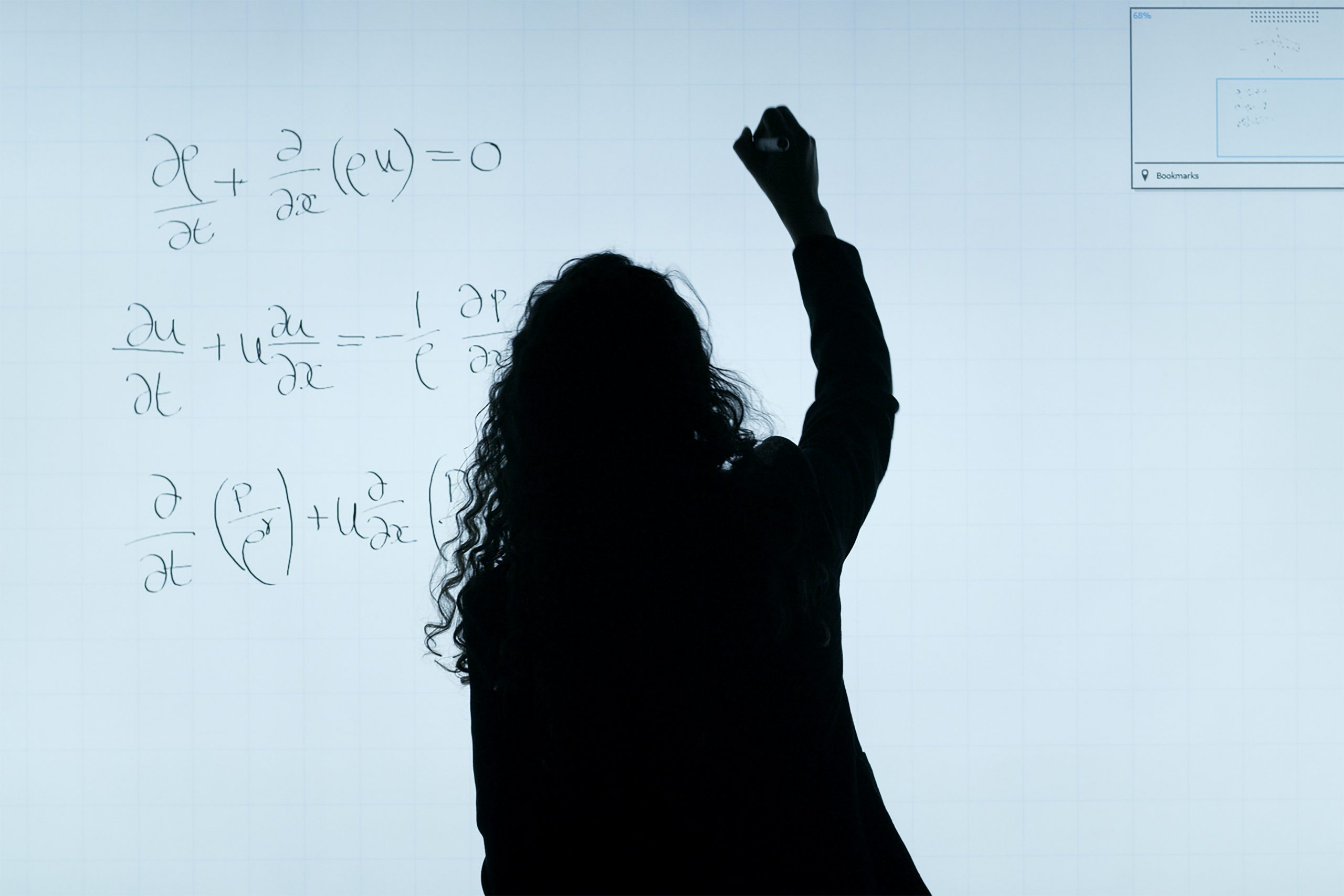
A Level Mathematics
- Are you ready to embrace the language of numbers and equations?
- Do you want to discover the elegance and precision of mathematics?
A Level Maths is a versatile, facilitating A-Level for those students who really enjoy solving equations, drawing graphs and working with algebra. Pure Mathematics contributes two-thirds of the course and involves primarily mathematical proof, geometry and algebra. The remaining third of the course is split evenly between Statistics and Mechanics (the study of how objects move).
Exam board: AQA
Components
Paper 1 – Pure Mathematics
Percentage of total marks: 33.33%
Method of assessment: Written exam 2 hours
Proof, Algebra and functions, Coordinate geometry, Sequences and series, Trigonometry, Exponentials and logarithms, Differentiation, Integration, Numerical methods
Paper 2 – Pure Mathematics and Mechanics
Percentage of total marks: 33.33%
Method of assessment: Written exam 2 hours
Paper 1 topics, plus: Vectors, Quantities and units in mechanics, Kinematics, Forces and Newton’s laws, Moments
Paper 3 -Pure Mathematics and Statistics
Percentage of total marks: 33.33%
Method of assessment: Written exam 2 hours
Paper 1 topics, plus: Statistical sampling, Data presentation and interpretation, Probability, Statistical distributions, Statistical hypothesis testing
Skills
You will develop your logical, analytical, interpretative and problem solving skills to gain technical knowledge and highly transferable employability skills. Through group work, you will also improve your social and communication skills, you will also extend your understanding of statistical distributions.
Careers / destinations
Degree choices where A-level Mathematics is an essential requirement: actuarial science, engineering, economics, mathematics, physics, statistics. There are many well-paid careers which follow on from A-level Mathematics: engineer, actuary, quantitative analyst, economics/ financial adviser, accountant, cryptographer (decoding and encoding information), computer animator, and many more.
Mathematics
What do I need to study Maths at Loreto?
You should enjoy the subject and we recommend you study the subject if you are expected to achieve a grade 7 or higher at Maths GCSE.
Why should I study A-level Maths at Loreto?
Maths is such a well-respected and fantastic qualification because a
student who has succeeded at the subject has demonstrated strong problem-solving and logical reasoning skills. Maths goes well with a high number of other subject qualifications. It is a pre-requisite of most Engineering and Computer Science based university course. Maths also goes extremely well with most Social Science courses such as Geography, Psychology, Accounting, Economics and Business Studies.
What makes the Maths department at Loreto so special?
We have a long track record of getting well above average A*- B rates at Loreto. We have an extremely enthusiastic, supportive and well qualified group of teachers with a fantastic building to teach Mathematics in. All our students are incredibly highly motivated to do well. We have a very positive work environment to work in. You will get a folder at the beginning of each year with bespoke notes written by teachers that they work through in each lesson.
What is the main difference between Maths GCSE and Alevel Maths?
The main topics that are taken forward into the Maths A-level that you know from GCSE are solving equations, working with quadratic equations and trigonometry. We very much build on your experience of working algebraically by studying Pure Maths topics at A-level. Two-thirds of the A-level is Pure Maths, the remaining third is split between Mechanics and Statistics. Mechanics is more closely related to GCSE Physics - in particular, we look closely at speed, distance, forces and time. Statistics continues to look at probability, averages and scatter diagrams, but in greater depth.
What is a typical Maths lesson like?
An A-level Maths class typically contains between 20 and 25
students and will usually start with student answering a number of
short memory retrieval questions on mini-whiteboards. We then
explore a new topic together through exploration activities with the teacher carefully scaffolding and questioning students so that
you are carefully guided to new techniques building on past
knowledge. We use a wide variety of activities to aid your learning
and use a high number of real-life scenarios to help you
relate the subject to your own experiences or future career fields.
What extra support will students get?
Our teaching staff are incredibly quick to support students in lessons, which includes getting the support of surrounding students in class. We run regular weekly lunchtime drop in sessions where students come in and ask questions from lessons and homework tasks. In addition, students who are finding the course difficult go to extra lessons in the second year of study to lift their performance. Finally, we offer extensive revision lessons in the run up to the final exams, at the end of the second year of study.
Are there any resources that are recommended to prepare for A-level Mathematics?
To do well at A-level Mathematics you need strong algebraic and
problem-solving skills. Any GCSE Maths revision guide is suitable,
however two good specific A-level Maths preparation books are:
CGP Head Start to A-level
Maths Preparation for AS/A level Maths Alpha workbook
We will also give you a welcome pack of preparation questions at
enrolment.
